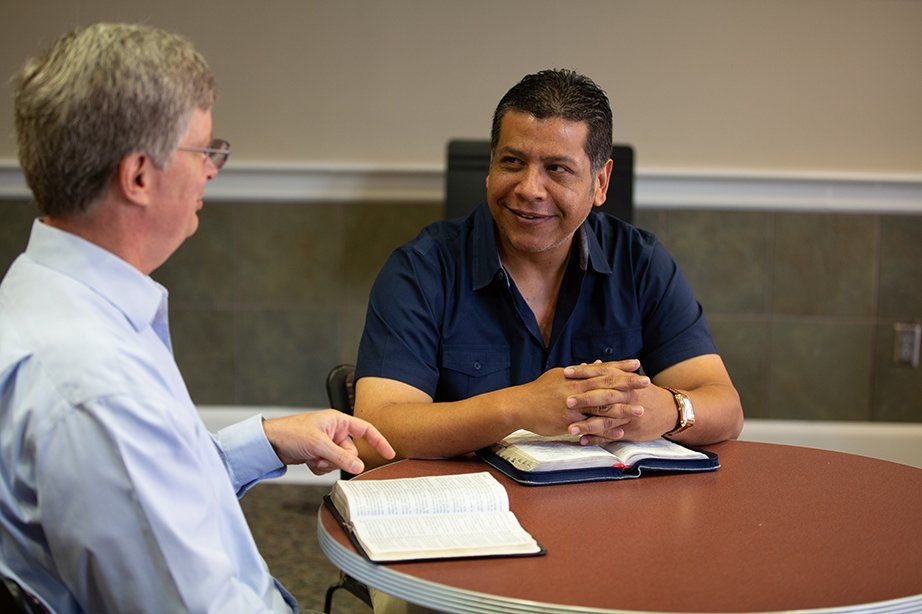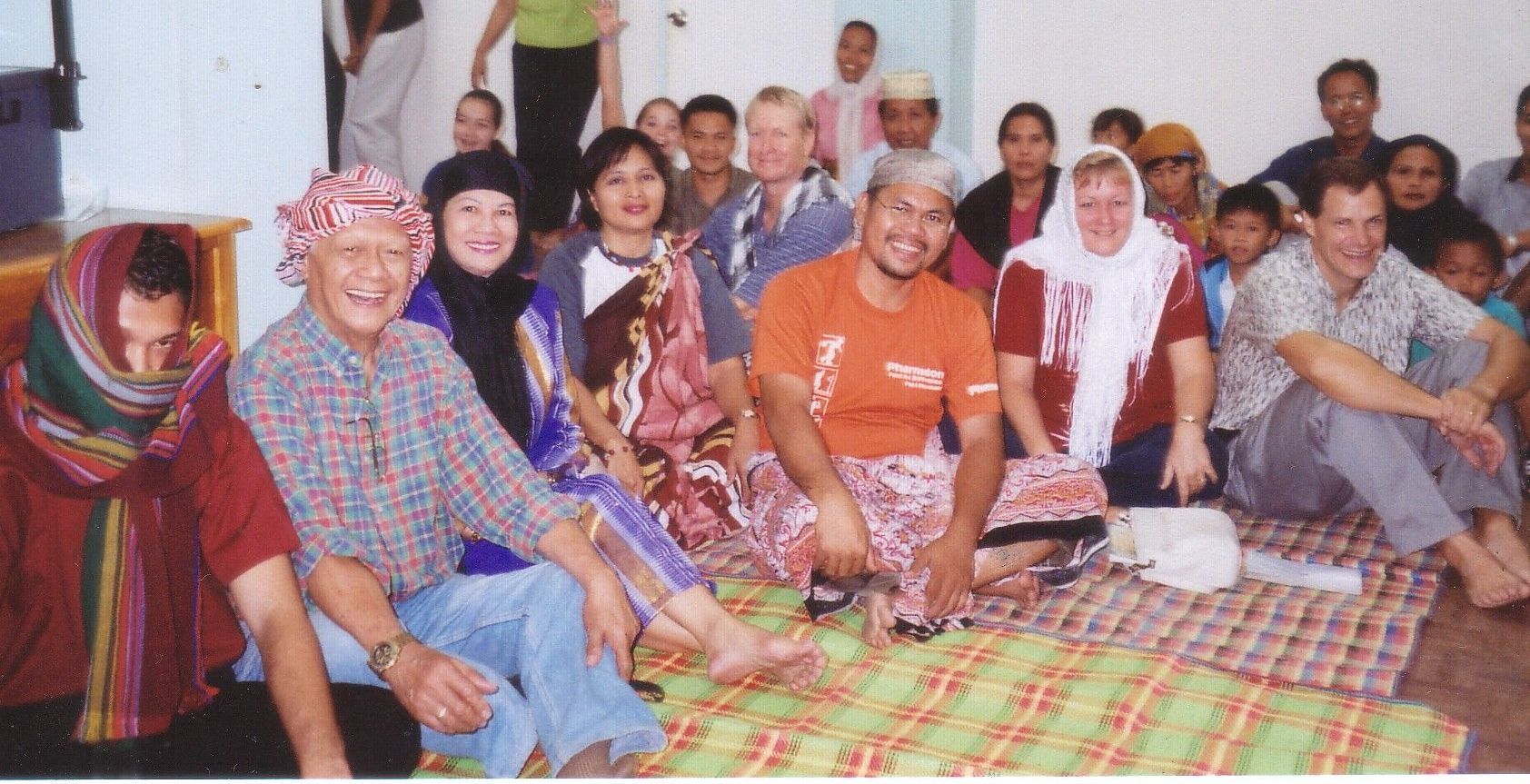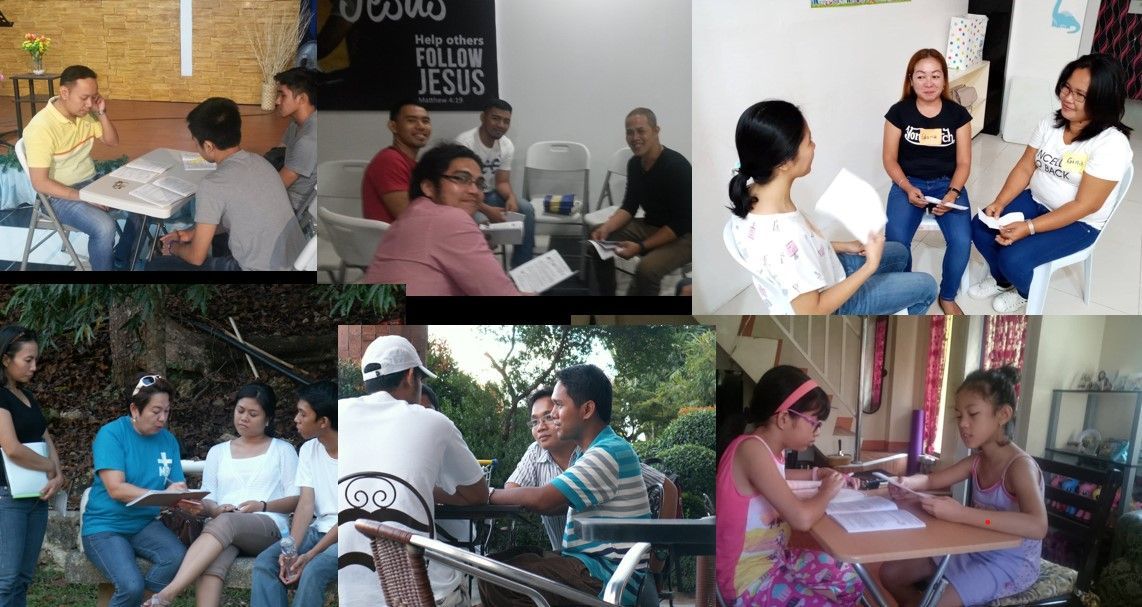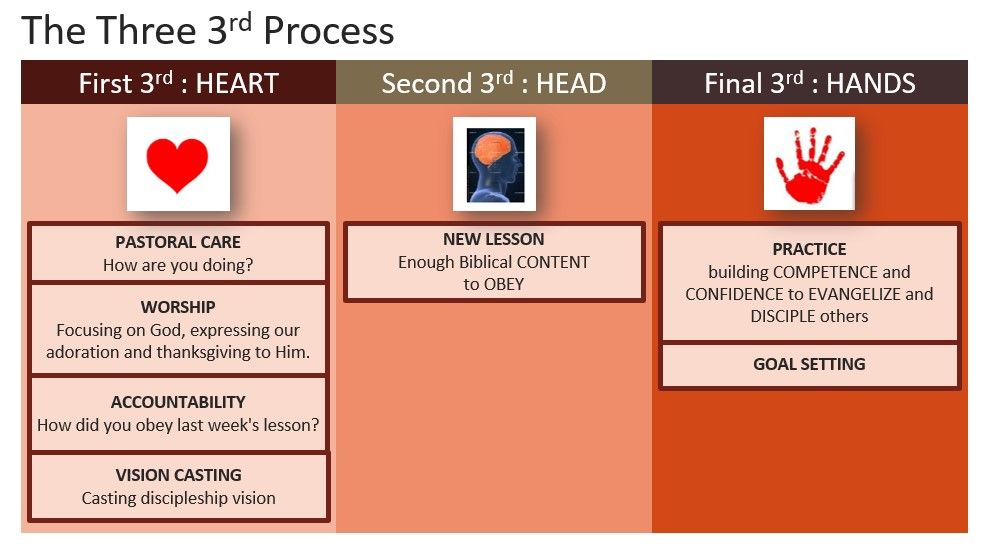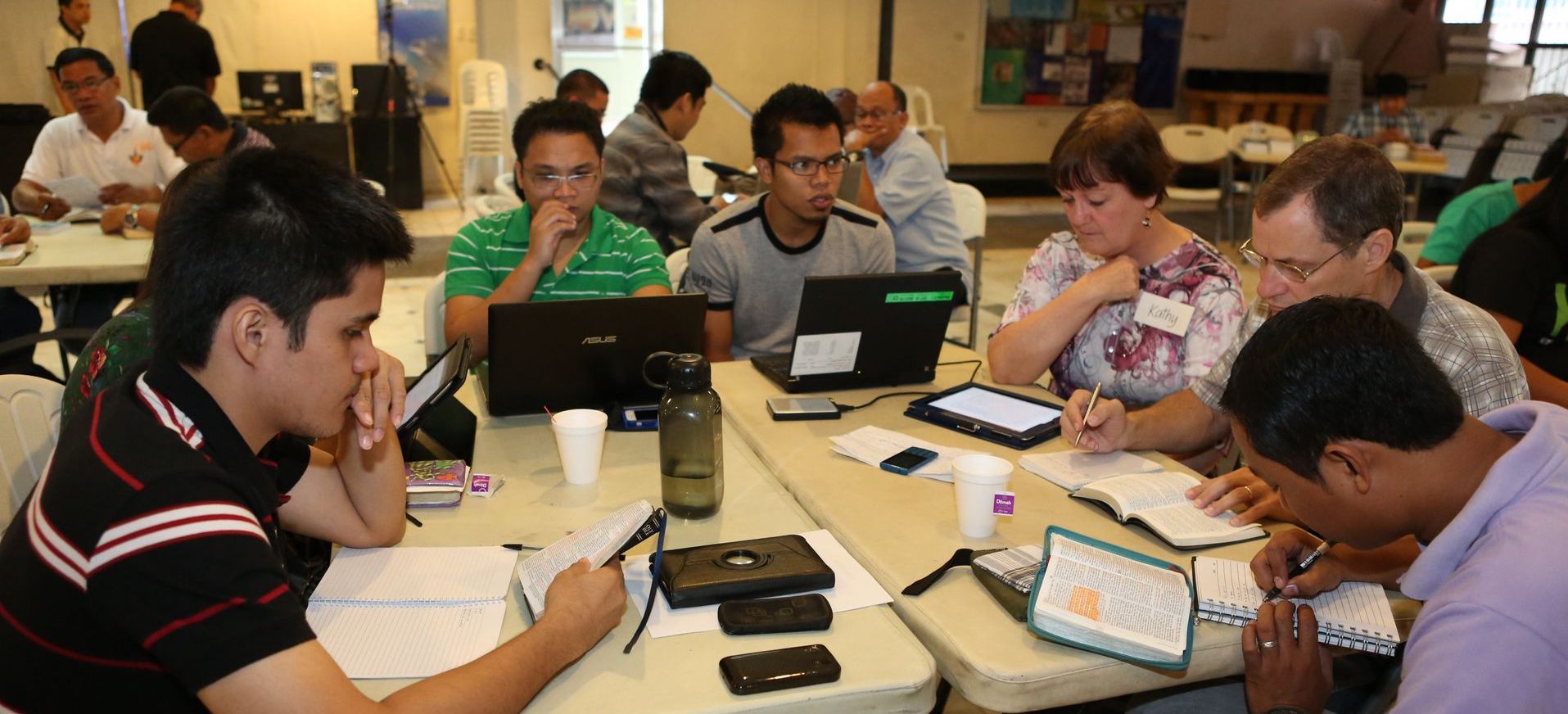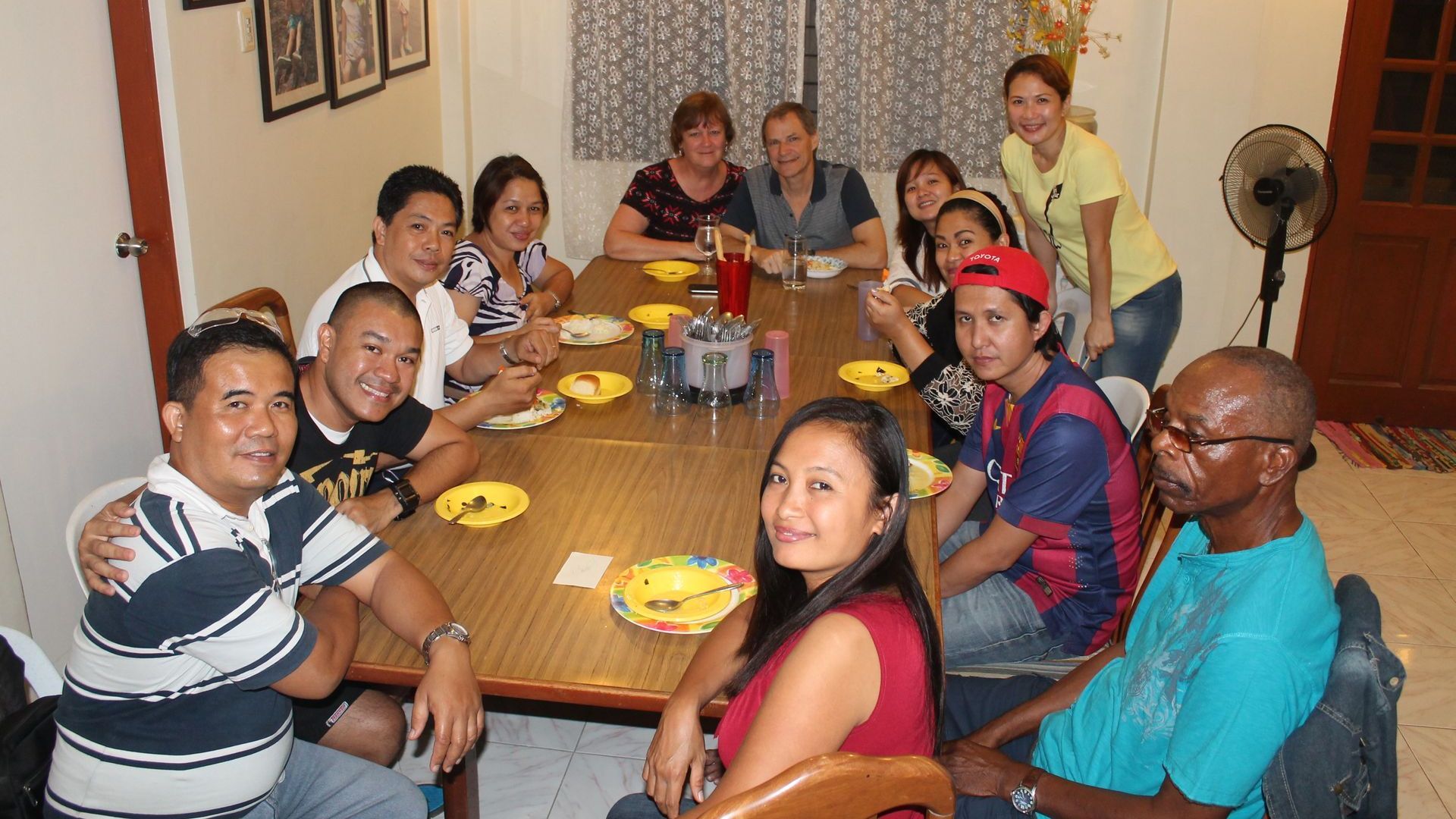A Filipino pastor came in to lead the church we had just planted. Immediately he started an Evangelism Training program, involving as many of the church people as possible. I remember several things he said at that training. One was that
“you have to have a bigger front door than your back door.” He said that every church will lose people along the way out the back door; some will get work elsewhere, some will fall away, some will die and so on. So, if you aren’t doing evangelism and bringing new people in continually, eventually the church will shrink and die. He also said that his primary discipleship tool was “Evangelism Explosion” for discipling his church members. Through the Evangelism Explosion equipping workshops he showed them how to pray, memorize Scripture, trust the Holy Spirit, and join God on mission.
I experienced some of this in my planting of churches. I would begin with all my efforts focused on connecting with the lost and sharing the Gospel. As people came to Christ, my time became limited to discipling the saved and gathering the church. But then I would realize that the ministry wasn’t growing anymore because I was focused on teaching and discipling the new believers rather than on reaching the lost. And inevitably we lost some of the members we already had. The solution is that part of discipleship has to be equipping the new disciples to become fellow soul-winners, and enabling them to win and disciple new believers who will win and disciple new believers and so on.
At one stage I had designed a great discipleship process for all the members of the church but after a while no one was moving through the phases of the process. It was a big wake up call to me that the disciple-making process of a church or church plant has to start with evangelism, and evangelism has to continue in parallel to the discipling and training of believers.
"the disciple-making process of a church or church plant has to start with evangelism, and evangelism has to continue in parallel to the discipling and training of believers."
Jesus’s Mission
Jesus has a mission, “I will build my church…” and He has given us our part in that mission. Jesus used various words to emphasize various aspects of the work we are to do in helping build His church. He used terms like “go,” “sent,” “fishers of men,” “into the world,” “be my witnesses,” “you are the light of the world,” and “make disciples of all nations, baptizing them and teaching them to obey….” The Great Commission is really a compelling statement that summarizes all these commands and lets us know the main thing we are to do.
Matthew 28:18-20
“All authority has been given to me in heaven and on earth. Go, therefore, and make disciples of all nations, baptizing them in the name of the Father and of the Son and of the Holy Spirit, teaching them to obey everything that I have commanded you. And behold, I am with you to the end of the age.”
Jesus is at work building His church, gathering together a people for His own possession, and He invites us to work alongside Him with His authority and with His presence.
The main command here is “make disciples”
as we go into the whole world. “Baptizing” and “teaching” obedience to Christ are what we do with these new disciples. So “making disciples” starts with what we would normally call evangelism and continues with what we call discipleship.
Making Disciples = Evangelism + Baptism + Discipleship
Evangelism is the process that leads people toward Christ and into faith and grace. Baptism signifies this momentous transition from lost to saved (Lk 15:24), from darkness to light (Eph 5:8), from not God’s people to God’s own people (Rom 9:25), from being under judgment to being free from condemnation (Jn 3:18), from being dead to being alive in Christ (Eph 2:4,5), from not being His disciples to being His disciples. It is a once for all transition. Discipleship is the new disciple’s lifelong process of learning to follow and obey Christ in everything.
The Bible never uses the term “discipleship.” This has been our word to describe our life of growing as followers or disciples of Jesus. The term the Bible uses is
“making disciples.” Every time this term is used in the Bible, it refers to taking non-disciples and bringing them to Christ so that by faith they become new disciples.
So, obedience to the Great Commission begins with the lost, the non-disciples.
A lot of churches and missionaries are working hard at their “discipleship” programs and plans such as Community Groups, leadership classes, new believer classes etc., but they have no plan for reaching the lost in the community.
Pushing Back the Boundaries of Lostness
It’s also easy for missionaries to get drawn into ministries of maintaining the church and lose the passion to keep pushing the boundaries of lostness for Christ’s sake. This doesn’t mean that every TEAM worker’s primary ministry is directly reaching the lost, but that all our ministries are significantly connected to intentionally reaching the lost. We may be on a team that has a great plan for reaching the lost, and we understand that our role on the team is part of that big picture, and we know how we are connected to that purpose of joining Christ in that mission.
For example:
- We may be organizing the church’s small group ministry, but we will want to make a part of the small group meetings into a time to pray or plan for each individual’s personal outreach.
- We may be setting up the children’s ministry, and we will want to be sure that the children are getting the Gospel clearly. We may also plan on ways we can reach out with our children’s workers to the children of the neighborhood. We can teach the children how to share the wordless book or the Gospel bracelet. We would have a plan of what to do when an unbelieving family brings their kids to Sunday School. What will our steps be to use that opportunity? How can we make that family feel especially welcome and loved?
- We might be teaching in a Bible School, and we will look for ways to help our students prepare to lead their churches to reach the lost neighborhoods of their towns and cities. We can demonstrate to the students from the Bible that the whole story of the Bible is that of God seeking and saving the lost to make them His own. This was also the focus of Jesus’s ministry with His disciples. From the beginning, he told them that their discipleship was to prepare them to be “fishers of men,” and when his training time was done, he turned to the cross to complete his mission of salvation, and then he closed His discipleship time by telling them to now go fish: “Go and make disciples.”
Some questions for personal reflection:
- How are you connected to winning the lost?
- What do you need to do to realign your ministry so that you are part of “pushing the boundaries of lostness?”
- How is the church you are planting equipping the believers to reach the lost around them?
- How can you keep this passion for evangelism alive in the new church?
- As you plan the year’s ministry direction and goals, how will you keep the evangelism fires burning?
Response:
In the comments below share briefly some ways you have done this in your ministry
